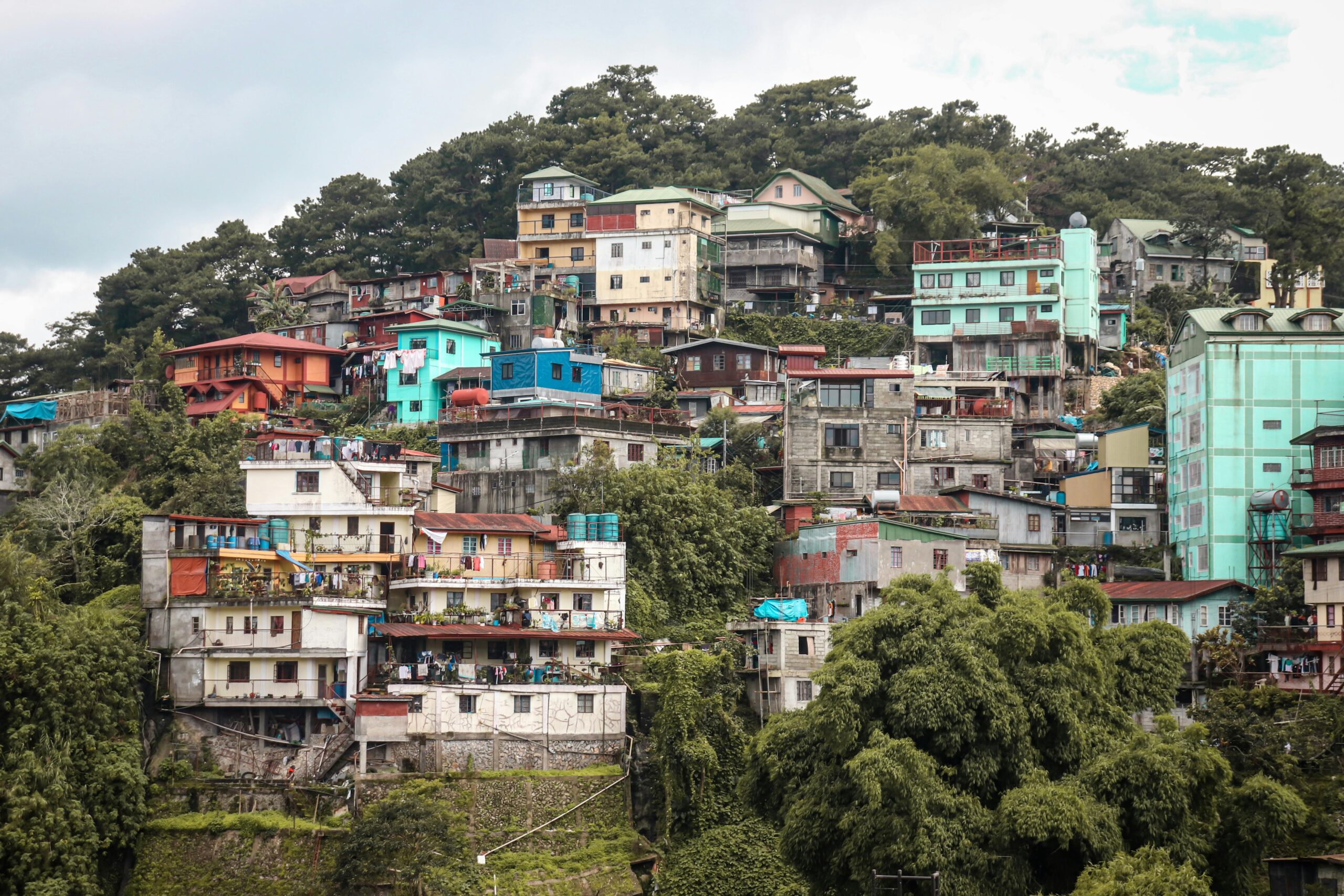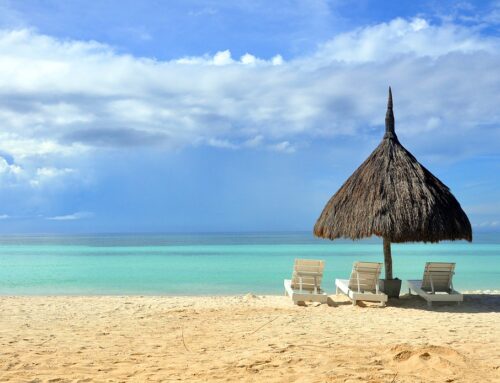
Baguio: Weighing the Pros and Cons for Expats
Thinking about moving to Baguio? Let’s talk about what it’s really like to live there as an expat.
People call it the “Summer Capital of the Philippines” for a reason — the weather’s cooler, the air smells like pine trees, and the mountain views are pretty amazing. It’s a chill place with colorful festivals, friendly locals, and a laid-back vibe that’s hard to beat.
But it’s not all sunshine and strawberries.
Getting around can be a pain, especially when tourists roll in. Traffic builds up fast, parking’s a hassle, and sometimes there are brownouts or water interruptions that mess with your day.
So what’s the real deal with expat life in Baguio? In this post, we’ll break down the good stuff and the not-so-great parts so you know exactly what to expect.
Thinking About Moving to Baguio? Here’s What Expats Really Love and What Drives Them Nuts
If you’re dreaming about cooler weather, pine trees, and mountain views, Baguio might already be on your radar. It’s known as the “City of Pines” and it’s a favorite for expats who want something different from the usual tropical heat in the Philippines.
But like anywhere, there are some trade-offs. Let’s dive into what makes life in Baguio awesome and what might get on your nerves.
People Are Genuinely Friendly Here
One of the first things expats notice in Baguio is how easy it is to feel at home. Locals are warm, laid-back, and open to newcomers. Whether you’re chatting with a vendor at the market or joining a community event, you’ll find it easy to make friends. You’re not just a visitor here. People really try to make you feel like you belong.
Finally You Can Enjoy Weather That Doesn’t Melt You
Let’s be real. The heat in most parts of the Philippines can be brutal. Baguio is different. You can walk outside in the afternoon without instantly sweating through your shirt. Temperatures usually sit somewhere between 17 and 26 degrees. Cool enough to sleep without aircon and perfect for spending time outdoors. It just feels better.
Green Spaces Are Everywhere
Nature is a big part of Baguio’s charm. Whether you’re into hiking, biking, or just wandering through tree-filled parks, it’s easy to get outside and clear your head. On weekends, a walk around Burnham Park or a quick trip to nearby mountains can feel like a mini reset. You don’t have to go far to feel connected to nature.
It’s a Creative and Cultural Place
Baguio has its own vibe. You’ll see it in the local markets, the art galleries, and the weekend festivals. There’s always something going on. From traditional parades to indie art shows, the city keeps things interesting. If you enjoy culture, creativity, or just people-watching, there’s plenty to explore.
Living Here Feels Safe
Most expats feel pretty secure in Baguio. Crime rates are lower than in the big cities, and people tend to look out for one another. That said, it’s always smart to be aware of your surroundings and take normal precautions. Know your emergency contacts, keep your stuff secure, and respect local customs. A little street smarts goes a long way.
There’s an Active Expat Scene
You won’t feel like the only foreigner in town. Baguio has a small but active expat crowd. There are meetups, social clubs, and online groups where you can get tips, share stories, or just grab a coffee with someone who gets the whole living-abroad thing. It’s a great way to settle in and get support while adjusting to life here.
Good Schools and a Learning-Friendly Environment
If you’re bringing kids or just looking to learn something new yourself, Baguio has a solid education scene. There are good schools, universities, and training centers around town. The cooler weather and peaceful surroundings also make it a great place to focus and grow. Whether it’s school or personal development, this place gives you space to think.
But Let’s Talk About the Not-So-Fun Stuff
Of course, it’s not all pine trees and perfect weather. Living in Baguio comes with a few headaches you’ll want to know about ahead of time.
Traffic Can Be a Total Time Suck
Even though Baguio is way smaller than Manila, traffic here can get surprisingly bad. During weekends, holidays, or long breaks, the city gets flooded with tourists. We’re talking thousands of extra cars squeezing onto narrow roads. Sometimes it can take an hour just to go a few blocks.
Mornings and evenings are rough too. Locals heading to work or school means rush hour gets real. The roads aren’t built for that much traffic, so everything slows down fast.
Good Luck Finding Parking
If you have a car, prepare for a daily parking challenge. Spots fill up quickly, especially at busy places like SM Baguio. It’s not uncommon for the mall parking to be full by mid-morning. That means a lot of circling and waiting, which just adds to the stress.
Power and Water Don’t Always Cooperate
Every now and then, you might lose power or water for a few hours. Brownouts happen, especially during heavy rains or peak usage times. Water interruptions aren’t constant, but they do pop up. It’s smart to have a backup plan like extra drinking water and a small generator if you’re staying long-term.
Limited Public Transportation Options
While Baguio does offer public transportation services, the system is often inadequate to meet the increasing demand, particularly during peak hours and tourist seasons. The limited routes, infrequent schedules, and overall lack of efficiency can pose significant challenges for residents and visitors alike who rely on public transport. This reliance on private vehicles is further exacerbated by the scarcity of reliable and convenient public transportation options. As a result, many individuals find themselves with no viable alternatives to personal car ownership, contributing to the city’s traffic congestion.
The absence of a robust public transportation system also impacts accessibility, as it limits mobility for individuals with disabilities, the elderly, and those who cannot afford private vehicles. This inequality in transportation options further compounds the city’s traffic woes.
Weather Challenges
Baguio’s reputation as a summer capital is undeniably linked to its cool climate, yet this same weather condition presents significant challenges. The city experiences pronounced wet and dry seasons, with the former often characterized by heavy rainfall. This meteorological pattern frequently results in flooding, landslides, and road closures, disrupting daily life and economic activities.
The city’s hilly terrain exacerbates the impact of heavy rainfall, as it increases the risk of landslides and soil erosion. These natural calamities not only cause property damage but also pose a serious threat to human life. Moreover, the frequent occurrence of inclement weather can disrupt transportation networks, leading to delays and cancellations of flights and bus services. Such disruptions further contribute to the city’s traffic congestion issues, as travelers opt for alternative modes of transport, adding to the already heavy traffic load.
Internet Connectivity
While internet access has improved over the years, it can still be inconsistent in some areas of Baguio. A reliable internet connection is crucial for remote work and communication, so it’s essential to consider this factor when choosing a place to stay.
Challenges in Basic Utilities
Beyond traffic congestion and weather-related issues, Baguio also grapples with challenges in providing essential utilities to its growing population. Water and electricity shortages are common problems that significantly impact the quality of life for residents and businesses alike.
Water Supply Issues
Baguio’s increasing population and the demands of tourism have strained the city’s water resources. During peak seasons, water shortages are prevalent, leading to intermittent supply or even complete outages in certain areas. This lack of reliable water supply affects households, businesses, and public establishments, hindering daily activities and economic productivity. Additionally, the city’s hilly terrain makes water distribution challenging, with some areas facing more severe shortages than others.
Electricity Outages
Frequent power interruptions are another common issue in Baguio. The aging electrical infrastructure struggles to cope with the increasing demand, particularly during peak hours and inclement weather. These power outages disrupt daily life, affect businesses operations, and can lead to losses in productivity. Moreover, the reliance on generators as backup power sources contributes to noise pollution and air pollution, further deteriorating the city’s environment.

















